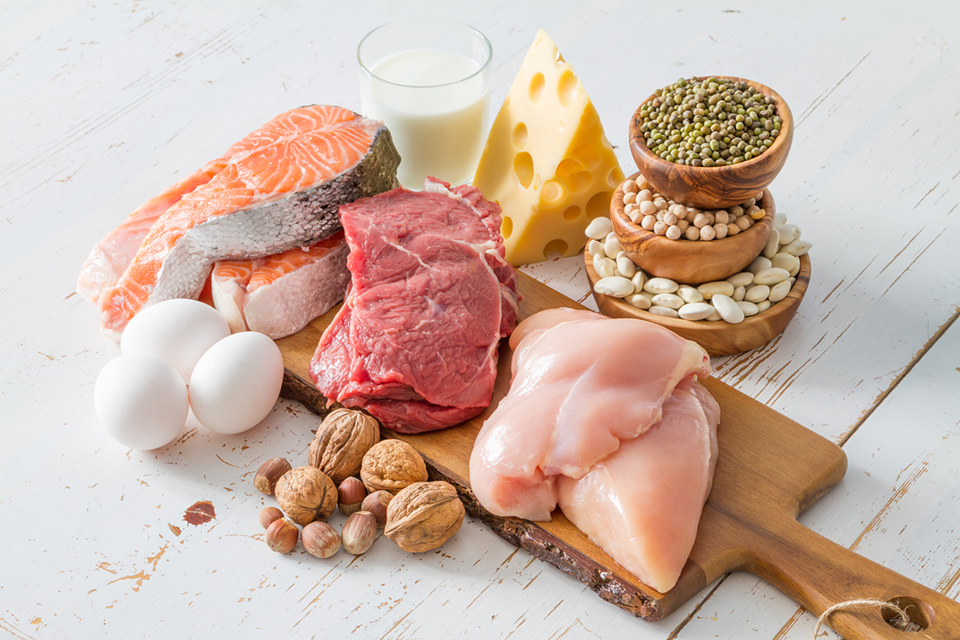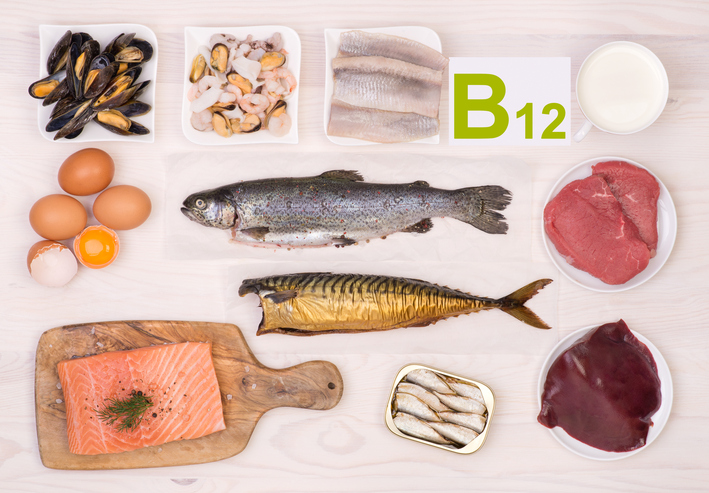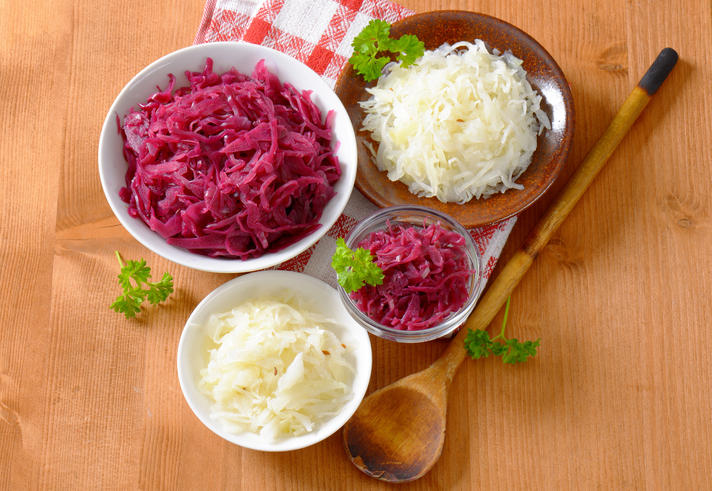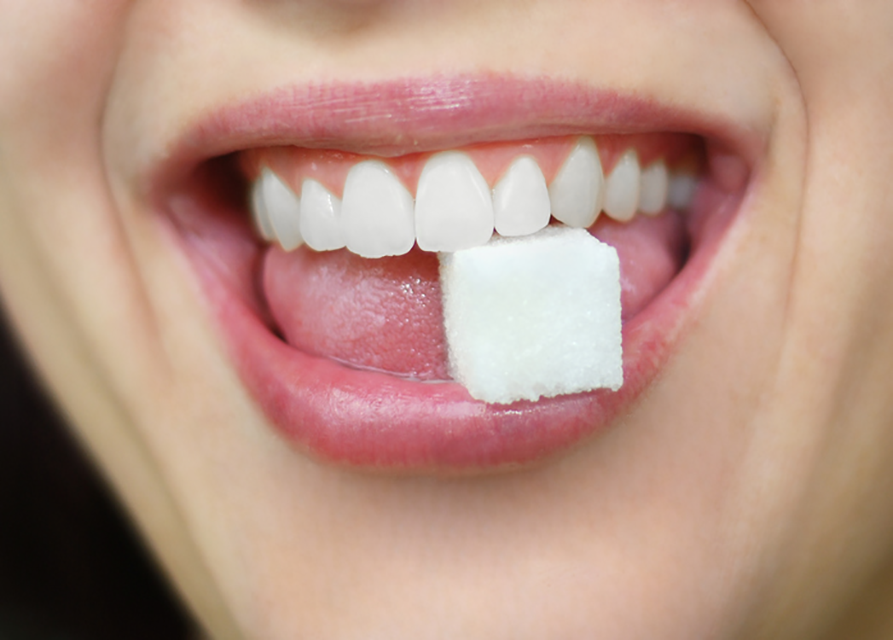Research shows that a Mediterranean diet may help prevent depression. Nutritionist May Simpkin has a mood-friendly diet makeover to fix that
Recent news reports show that following a Mediterranean diet may help prevent depression, as research suggests.
This research is based off findings in Molecular Psychiatry, from a review of 41 studies published within the last eight years.
Experts concluded that a plant-based diet of fruit, veg, grains, fish, nuts and olive oil – with reduced amounts of meat or dairy – appeared to have benefits in terms of mood.
People who followed a diet similar to this were found to be 33 per cent less likely to develop depression over the following eight to 12 years than those who didn’t adhere to a Mediterranean diet.
However experts also noted that the theory needs to be tested through trials and more research should be conducted on whether depression can be treated with diet.
We spoke to nutritionist May Simpkin, who explained the benefits of eating a plant-based diet rich in fruits, veg, fish and nuts.
There’s so much emphasis on mental health in the media, no more than in recent weeks. The one in four of us affected by depression (especially women) and the soaring rise in antidepressant prescriptions. Depression is estimated to affect 350 million people worldwide, with its symptoms associated with decreased productivity as well as decreased quality of life and wellbeing. But what we rarely hear about is how crucial diet is to mood and how effective it can be to creating lasting, fundamental changes to how people feel and even – in my experience – in helping alleviate depression. I see it every day in my practice.
Fundamental to my approach with any client is uncovering the root cause of any symptoms and this applies to the reporting of anxiety and depression in exactly the same way. Unfortunately, this is often overlooked in many of the discussions in the public eye, whether on the TV or online, yet the body of evidence and indeed the medical literature shows a clear link between the diet and mental health.
MORE: Need a protein powder for weight loss? These are the 6 ingredients to look for
Depression and food
Traditionally, it is not uncommon for the treatment of depression to focus on the biological and psychological pathways and for antidepressants to be prescribed, with ease, from the outset without any attempt to delve deeper and find out why there is depression in the first place. Yet, there is significant evidence to suggest that diet quality and lifestyle factors contribute to a number of mental illnesses and such measures can be used in the management of mental health issues.
The brain works hard 24/7 and needs to be constantly fuelled from the foods we eat
I believe depression is the symptom of an imbalance in the body and as such, it is important to get to the root cause of this imbalance and address this imbalance, rather than masking its symptoms.
Food plays a key role and it is vital to look at the diet and consider whether there are any deficiencies that may be contributing to the development of mood imbalances as well as considering the management of mental health issues or prevention in the first place. The interactions between different nutrients are equally important and a varied diet will provide the essential nutrients. The brain works hard 24/7 and needs to be constantly fuelled from the foods we eat. Without this fuel, brain function will be affected and ultimately, so will your mood.
high intakes of fruit, vegetables, fish and whole grains are associated with a reduced risk of depression
According to the Mental Health Foundation, those who reported a mental health problem of any degree also reported a less healthy diet, in terms of fresh fruit and vegetables and cooking from scratch but included more unhealthy foods such as crisps, chocolate, ready meals and takeaways. A systematic review, published in the American Journal of Clinical Nutrition suggests that high intakes of fruit, vegetables, fish and whole grains are associated with a reduced risk of depression. It’s no coincidence that the rise in mental health problems in the last 50 years also accompanies a rise in the consumption of processed foods and less fresh fruits and vegetables.
Alongside medical intervention and professional treatment and guidance, a varied and healthy diet will go a long way to help recovery, control mood and restore balance. Here’s how you can eat to better your mental health.
Get enough protein
In the first instance, the feel-good neurotransmitters, serotonin and dopamine are both made up of amino acids, in other words, proteins. Whilst the body can make some amino acids, there are a certain group of amino acids that are referred to as “essential”, which means they must be consumed and come from the food we eat. If the diet is lacking in these specific amino acids, the production of these neurotransmitters will be compromised. Ensure adequate protein intake especially from fish, quinoa, eggs, tofu, beans and pulses as such proteins are essential to the production of amino acids.
B vitamins are your friend
The chemical processes that take place in the body often require co-factors and B vitamins play a key role in the conversion of these amino acids into neurotransmitters. If you are not eating enough B vitamins (or amino acids) you will not produce adequate levels of serotonin and dopamine. B vitamins are best taken as a complex and foods that are rich in B vitamins tend to provide a good spectrum, especially those in whole grains, spinach, kidney beans, chickpeas, lentils, quinoa, salmon, tofu, eggs and pecan nuts.
Healthy fats are essential
The nerve cells in the body are made up of fat and a certain amount of good, “essential” fats must come from the diet. Foods rich in good fats include oily fish, such as salmon, sardines and mackerel as well as avocado and walnuts.
Around 95% of of the feelgood neurotransmitter serotonin is made in the gut
Treat your gut well
Digestive health is just as crucial to mood and if your gut is not in optimal health, digestion and absorption of nutrients will not be as efficient. Around 95 per cent of serotonin is produced in the gut and your gut flora plays an essential role in ensuring a healthy digestive tract. Ensure plenty of fibre to promote the “good” bacteria, so that they can thrive and proliferate in your gut and reduce the sugars, which will feed the unhealthy “bad” bacteria and increase inflammation. Fermented foods like kimchi, miso, sauerkraut and pickles will provide the good bacteria and will help to contribute to a healthy digestive system but you may like to consider a good quality probiotic to “re-innoculate” your gut at the outset, whilst you make changes to your diet.
Stay away from the sweet stuff
As well as improving digestive health, avoiding refined sugars will also contribute to a better mood. These sugars are quickly absorbed into the blood, providing a surge of energy. However, this will soon be followed by an energy dip, as insulin is quickly released to remove the sugars from your blood. This dip will leave you feeling tired, lethargic and jittery and can further contribute to anxiety and feeling low. Instead, opt for complex carbohydrates such as wholegrains, sweet potato and starchy vegetables like sweet potato, carrots, parsnips and butternut squash and ideally eat them with good quality protein such as fish, chicken, eggs or quinoa, to release the sugars more slowly into the bloodstream.
Keep your hormones in check
An imbalance of the sex hormones oestrogen and progesterone can have an influence on the pathways that antidepressant medications also act upon, affecting the way in which the neurotransmitters serotonin, dopamine and GABA work on the brain. Balancing hormone levels with the diet should be considered in the first instance before beginning antidepressant medication.
Studies indicate that people with depression show evidence of inflammation
Eating phytoestrogen foods (meaning literally, plant-based oestrogen foods) that mimic the body’s natural oestrogen will help to balance oestrogen levels in perimenopause (the decade before menopause) and menopause. Phytoestrogens include all vegetables as well as beans and pulses. Try this Aubergine and Chickpea Moussaka to ensure you get plenty of phytoestrogens.
Reduce weight to a healthy level
Studies indicate that people with depression show evidence of inflammation but the cause is unclear. However, a recent 2015 study published in the Journal of Psychiatric Research established that obesity may be a contributing factor to the inflammatory profile of depressed patients. Reducing weight to a healthy level is important to help reduce the risk of developing depression as well as many other negative health outcomes.
So, try making these changes, opting for a healthier diet, choosing plenty of vegetables, good quality protein and good fats and see how you feel.

leading nutritionists
May Simpkin is a UK qualified Nutritional Therapist with a Masters Science degree in Personalised Nutrition. She is an experienced clinician, practising functional medicine from an evidence base, providing the latest research into nutrition. She is a registered practitioner, bound by the code of ethics in clinical practice and has met the strict criteria required for BANT, the British Association for Applied Nutrition and Nutritional Therapy and the CNHC, Complementary and Natural Healthcare Council, which is the council recommended by the UK Department of Health for complementary and natural healthcare services. She is also Chair of the Continual Professional Committee at BANT. In addition, she is registered withAFMCP, The Institute for Functional Medicine – Applying Functional Medicine in Clinical Practice™ and a member of the RSM, The Royal Society of Medicine.
For more information on how to lose weight, nutrient-rich recipes, and ideas visit www.maysimpkin.com or Follow May on Instagram: @maysimpkinnutrition or Twitter @MaySimpkin
Read more
‘Giving up sugar has made me moody and sad’ – the sugar-free diet diaries
4 reasons you’re not losing weight on a vegan diet
4 reasons your coffee habit is messing with your head
Like this article? Sign up to our newsletter to get more articles like this delivered straight to your inbox.




























































